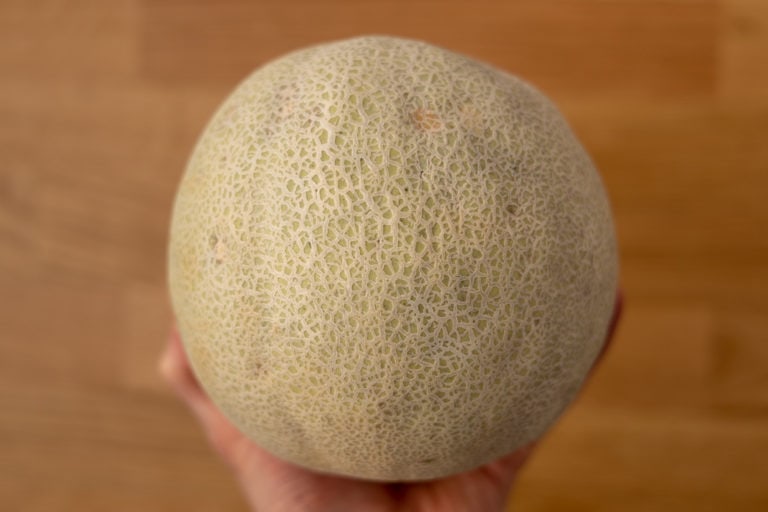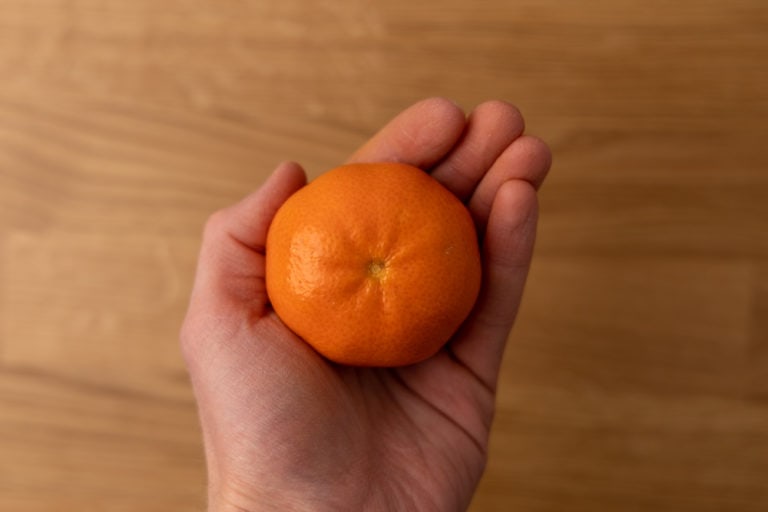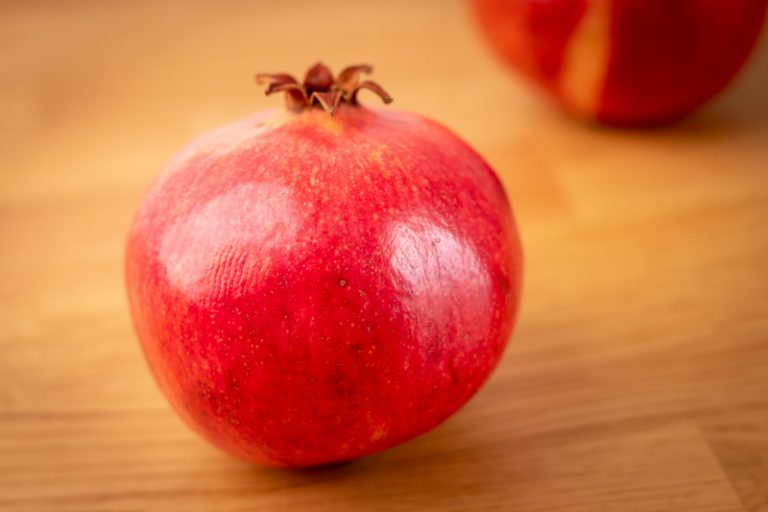How to Store Lemons? Should You Refrigerate Them?
Here’s all you need to know about storing lemons. Learn if and when you should refrigerate them, how to store cut lemons, and how to make them last as long as possible.
Bought a whole bag of lemons and not sure if you should leave them on the counter or put them in the fridge? How to store lemons?
Whole lemons last about a week on the counter and three to four weeks if you refrigerate them. So if you care about their shelf life, you should refrigerate them. Cut lemons require refrigeration and retain best quality for 3 to 4 days.
That’s it in a nutshell.
Interested in learning a bit more? Here’s what we discuss below:
- choosing lemons in the supermarket
- details on storing whole lemons
- when to refrigerate and when to leave on the counter
- options for storing cut lemons
- other useful tips related to storing lemons
Let’s jump right in.
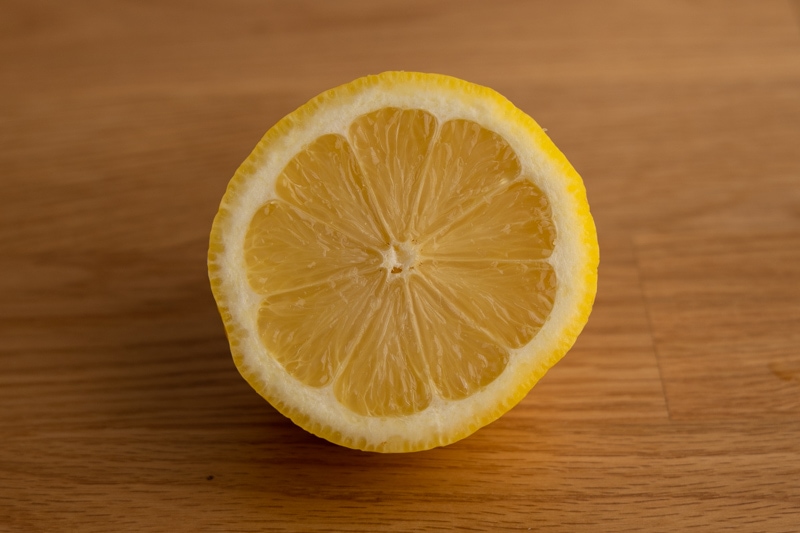
How to Choose Lemons
For your lemons to last as long as possible, choose ones that:
- are firm to the touch
- don’t have any soft spots or bruises
- are bright yellow without discolorations or blemishes
The first two are essential, which means you don’t want to buy a lemon that’s soft, bruised, or that has any soft spots. Such a lemon won’t last long (at best) or go bad due to bruising (at worst).
The third point, meaning the overall appearance of the lemon, is much less important. While you might be used to seeing perfect yellow lemons in adverts and stock photos, not every one looks like that.
Many lemons have some blemishes, discolorations, and other imperfections, and that’s fine. 99 out of 100 times, the inside of the lemon will be just fine.
(Look at the lemons I photographed for this article. All of them have some imperfections and discolorations.)
That said, if you also plan on zesting that lemon, make sure most of the rind is nice and yellow and good enough to zest. Otherwise, you’ll have to buy a dozen lemons just to get one lemon’s worth of zest.

How to Store Whole Lemons
The optimal way to store lemons is to keep them sealed in a freezer bag in the fridge. They last for more than 4 weeks if you store them this way.
If you just throw them in the fridge, they keep for 3 to 4 weeks, while if you leave them on the counter, all you get is about a week of good quality.
That’s how long lemons last, depending on how you store them.
If you decide to refrigerate your lemons, an easy upgrade is to place them in the veggie drawer instead of a shelf. The crisper is a more humid area than the rest of the fridge, which helps them retain quality (their water) for a bit longer.
(That’s also why lemons last the longest in a freezer bag. The bag prevents them from losing water too quickly, keeping their quality high.)
Now, no matter if your lemons end up in the fridge or on the counter, you don’t have to worry about what other fruits or veggies sit nearby. That’s because lemons aren’t particularly sensitive to ethylene.
If your lemons end up in a fruit bowl on the counter, try to keep them away from sunlight. You don’t want them to warm up too much and lose their water faster.
The same storage practices work for limes (How do you store limes?) and grapefruits (Do grapefruits need to be refrigerated?).
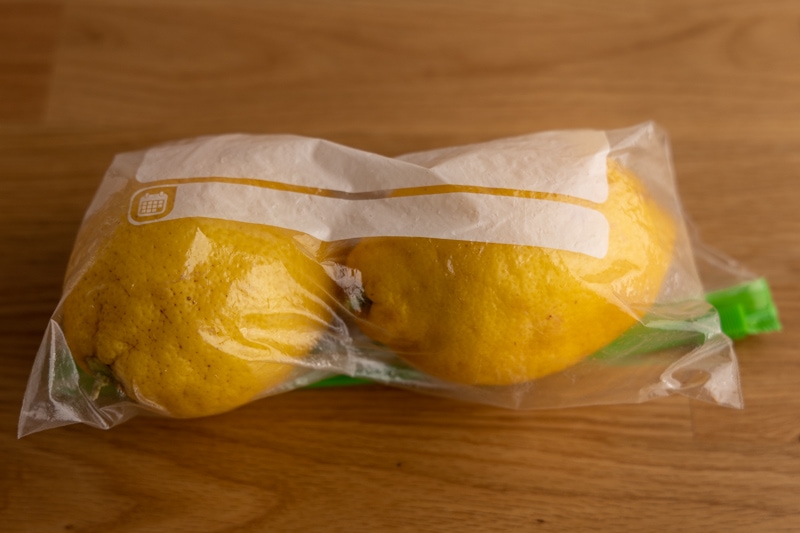
Should You Refrigerate Lemons?
You should refrigerate lemons if you want them to last as long as possible. But if you know you’ll use them up within a couple of days, you can leave them on the counter, and they will be just fine.
So if you’re only buying a lemon or two for the week ahead, leaving it at room temperature is an option. And a pretty useful one if you have a small fridge (like I do) and sometimes you just don’t have any spare space in there.
Once you cut a lemon open, it has to be refrigerated. And speaking of cut lemons, let’s discuss how to store them.

How to Store Cut Lemons
Store cut lemons for 3 to 4 days in an airtight container or freezer bag and in the fridge. If you’re using a bag, remember to squeeze out the air before sealing it.
If you don’t have a bag or container on hand, wrap them using plastic wrap.
Don’t wrap cut lemons using aluminum foil. Acidic foods react with aluminum, causing the metal to leach into the food. While ingesting some “extra” aluminum once most likely won’t make you sick, it’s definitely not good for you.
Alternatively, you can use one of those silicone food savers (or food huggers) if you happen to have one on hand. They work well too.
Like all cut fruits and veggies, cut lemons last only a couple of days. So if you have way too much on hand, freezing them is a simple solution to preserving lemons for later.
Now, let’s finish with a bunch of tips on getting the most out of your lemons.
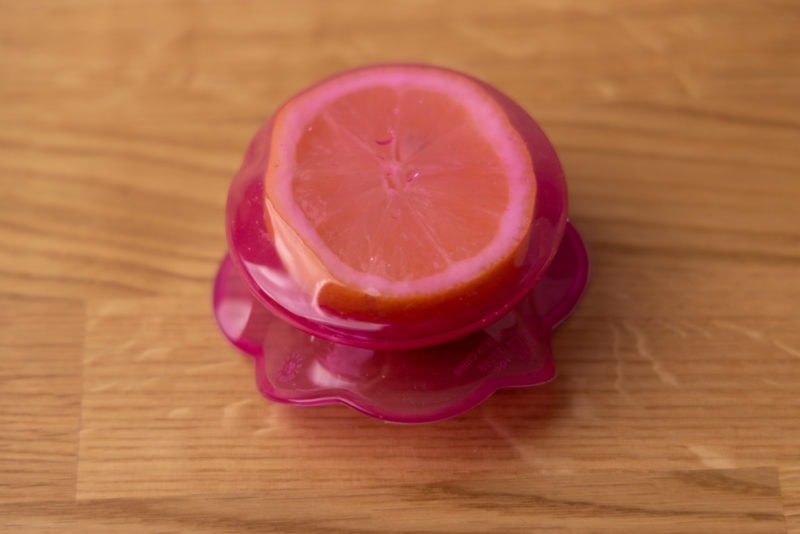
How to Make Lemons Last Longer
For starters, if your lemons are still whole and you want them to last as long as possible, refrigerate them in a freezer bag. That’s the only way they’ll last for over a month without freezing them.
(The same trick helps your limes last longer.)
Next, you can freeze your lemons or process them and freeze whatever you’re left with.
If what you’re after is juice, you can juice those lemons and freeze lemon juice. In most cases, you need the juice and not the whole fruit, so this approach might simplify things for you.
(Besides, the juice takes much less space than the whole fruit.)
If you need lemon zest, you can zest your lemons and freeze the zest separately. Or freeze whole lemons and zest them as needed. Or zest and juice the lemons, and freeze both separately. It’s up to you, really.
Related: How to store lemon zest?
Related: Can you freeze lemon zest?
Rotten Records: Share Your Snap!
Caught some food past its prime? Upload your photo to “Rotten Records” and help others spot the signs of spoilage. Every image makes our food community safer and more informed!


